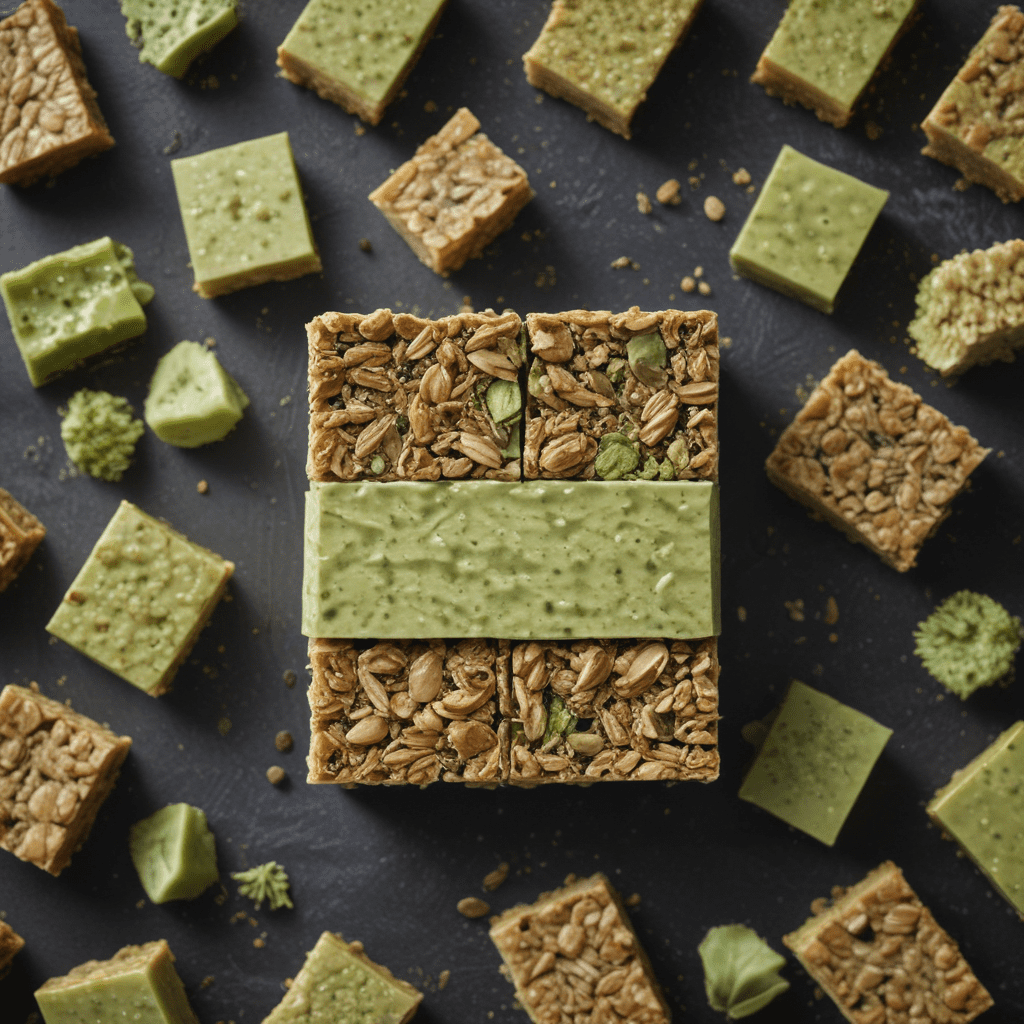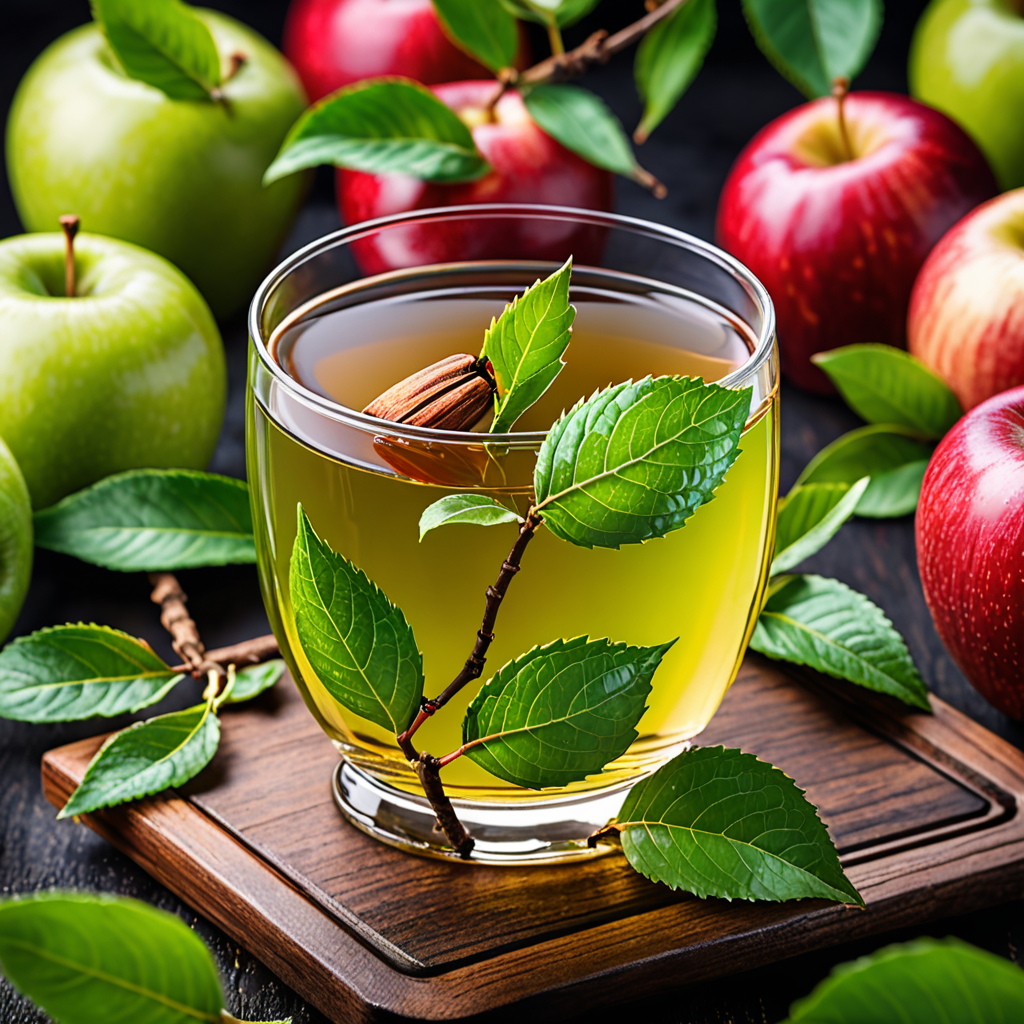
Matcha and Liver Health: Green Tea’s Detoxifying Benefits
I. Introduction
Matcha, a finely ground green tea powder, has gained prominence in recent years for its exceptional health benefits, including its potential to support liver health. This article delves into the scientific evidence behind matcha's liver-protective effects, exploring its detoxifying properties and mechanisms of action.
II. Matcha: An Overview
A. What is Matcha?
Matcha is a unique form of green tea made from shade-grown tea leaves that are stone-ground into a fine powder. This process preserves the plant's nutrients and antioxidants, resulting in a tea renowned for its vibrant green color, rich flavor, and abundant health-promoting compounds.
B. Health Benefits of Matcha
Matcha is a powerhouse of antioxidants, including catechins, particularly epigallocatechin gallate (EGCG). These compounds have been linked to a range of health benefits, including improved cognitive function, reduced inflammation, and protection against chronic diseases such as cancer. Additionally, matcha contains L-theanine, an amino acid that may promote relaxation and focus.
VI. Other Mechanisms for Liver Protection
A. Anti-inflammatory Properties
Chronic inflammation plays a significant role in liver damage and disease progression. Matcha's anti-inflammatory properties help combat this by reducing the production of inflammatory cytokines. EGCG, the primary catechin in matcha, has been shown to inhibit the activation of NF-κB, a key transcription factor involved in inflammatory responses. By suppressing inflammation, matcha may help protect the liver from damage and promote its overall health.
B. Regulation of Hepatic Lipid Metabolism
Non-alcoholic fatty liver disease (NAFLD) is characterized by excessive fat accumulation in the liver. Matcha has been found to regulate hepatic lipid metabolism, reducing the accumulation of triglycerides and improving liver function. EGCG has been shown to inhibit lipogenesis, the process of fat synthesis, and promote fatty acid oxidation, contributing to the reduction of liver fat content.
VII. Practical Applications of Matcha for Liver Health
A. Dietary Recommendations
Incorporating matcha into your diet can support liver health. Regular consumption of matcha tea, ranging from 1-2 cups per day, can provide significant benefits. Matcha powder can also be added to smoothies, baked goods, and other culinary creations, offering a convenient way to increase your intake.
B. Supplements and Beverages
Matcha supplements in capsule or powder form are available for those seeking a concentrated source of its liver-protective compounds. Matcha-infused beverages, such as lattes or energy drinks, can also provide a convenient way to enjoy the benefits of matcha while enhancing your daily hydration.
VIII. Safety Considerations
A. Caffeine Content
Matcha contains caffeine, which can have stimulating effects. While moderate caffeine consumption is generally safe, excessive intake can lead to side effects such as anxiety, insomnia, and headaches. Individuals sensitive to caffeine should consume matcha in moderation and consult with a healthcare professional if concerns arise.
B. Heavy Metal Contaminants
As matcha is made from whole tea leaves, it may contain trace amounts of heavy metals, such as lead and mercury. However, reputable matcha brands typically adhere to strict quality control standards to minimize these contaminants. It's important to choose high-quality matcha from reliable sources to ensure its safety.
IX. Conclusion: Emerging Potential of Matcha for Liver Health
Matcha, with its rich antioxidant and detoxifying properties, shows promise as a natural approach to supporting liver health. While more research is needed to fully understand its potential, preliminary evidence suggests that regular consumption of matcha may contribute to reduced oxidative stress, enhanced detoxification pathways, and improved liver function.
X. Future Research Directions
Further research is warranted to explore the long-term effects of matcha consumption on liver health, particularly in individuals with existing liver conditions. Additionally, investigating the potential synergistic effects of matcha with other liver-protective compounds could yield valuable insights for optimizing liver health strategies.
FAQ
How much matcha should I consume daily for liver health?
Regular consumption of 1-2 cups of matcha tea or the equivalent amount in matcha supplements or beverages is generally recommended.
Is matcha safe for individuals with liver disease?
While matcha may offer liver-protective benefits, it's important to consult with a healthcare professional before incorporating it into your regimen if you have an existing liver condition.
Can matcha help prevent liver disease?
Matcha's antioxidant and detoxifying properties may contribute to protecting the liver from damage and reducing the risk of liver disease. However, more research is needed to fully establish its preventive effects.


